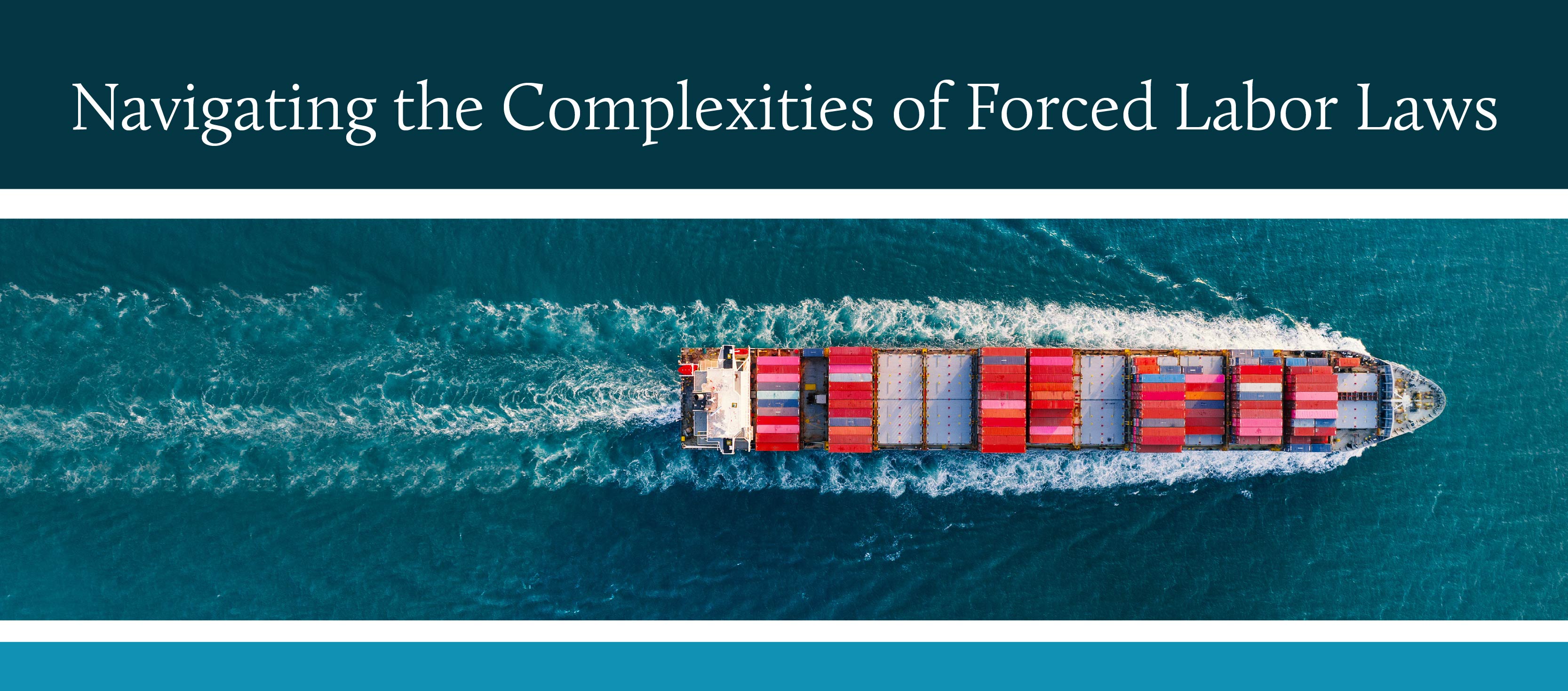In 2025, the retail and fashion industries are bracing for a transformative year, heavily influenced by the policies of the new Trump Administration. These policies promise rapid and significant changes, particularly in areas such as trade, tariffs, and immigration, which will profoundly affect global supply chains and labor dynamics.
Gender-affirming care (GAC) is a model of care encompassing medical, surgical, mental health, and non-medical services to support transgender and nonbinary individuals in affirming their gender identity. Advocates argue that GAC can be lifesaving for transgender youth experiencing gender dysphoria, a condition characterized by clinically significant distress resulting from incongruence between one’s gender identity and sex assigned at birth. However, recent legislative, executive, and judicial developments at both the federal and state levels have cast uncertainty over the future of GAC for minors.
Headlines that Matter for Companies and Executives in Regulated Industries
In a recent decision, the BBB National Programs’ National Advertising Division (NAD) took issue with social media content posted by influencers engaged by Revolve Group, Inc. and recommended that the company provide more robust and prominent guidance to its influencers on compliance with the Federal Trade Commission’s (FTC) Endorsement Guidelines.

Welcome to the February 2025 issue of “As the (Customs and Trade) World Turns,” our monthly newsletter where we compile essential updates from the customs and trade world over the past month. We bring you the most recent and significant insights in an accessible format, concluding with our main takeaways — aka “And the Fox Says…” — on what you need to know.

Download ArentFox Schiff’s Comprehensive Annual 2024 Trade Secrets End of Year Report.
On January 22, Nebraska state Senator Mike Jacobson (R), at the request of Governor Jim Pillen (R), introduced the Agriculture Data Privacy Act (LB525). This is a first-of-its kind privacy bill that would specifically regulate agricultural-sector data.
In an unprecedented and highly fluid series of US trade announcements emanating from Washington, DC, the latest Executive Orders (EOs) announced this past Friday and this week’s EO on steel imports did little to calm c-suite jitters.
On February 6, Congressional Republican leaders met with President Donald Trump to address the Trump Administration’s 2025 budget and tax priorities. During that meeting, the Trump Administration proposed to eliminate capital gains tax treatment on carried interest.
The initial weeks of the second Trump Administration has seen fast and furious changes to US government policies touching nearly every aspect of policy.
The second Trump presidency has arrived. With it – and particularly the Trump Administration’s push back on diversity, equity, and inclusion (DEI) programming at many levels – many organizations are under increased pressure to roll back DEI and broader environmental, social, and governance (ESG) programming.
This inaugural issue of ArentFox Schiff’s publication on international mining, energy, and infrastructure disputes aims to provide insights and practical information to general counsels and senior executives of companies operating internationally, particularly in countries that present challenging economic and political conditions for doing business.
Last week, Attorney General Pamela Bondi issued 14 memoranda outlining new enforcement priorities at the US Department of Justice (DOJ). Notably, DOJ resources will shift away from the Foreign Corrupt Practices Act (FCPA) and the Foreign Agents Registration Act (FARA) and toward prosecuting human trafficking and smuggling, immigration enforcement, and pursuing total elimination of cartels and transnational criminal organizations.
In this episode, Aaron H. Jacoby, who leads AFS Automotive, and Franjo M. Dolenac explore challenges dealerships face with the onslaught of DMV investigations into late title and registration transfers and resulting administrative, civil, and criminal actions.
Headlines that Matter for Companies and Executives in Regulated Industries
In the final days of the Biden Administration, the US Department of Health and Human Services (HHS) Office for Civil Rights (OCR) issued a notice of proposed rulemaking (NPRM) to modify the Security Rule under the Health Insurance Portability and Accountability Act (HIPAA). The NPRM proposes sweeping changes that impact how health care providers, health plans, and health care clearinghouses (covered entities) and their business associates (collectively, regulated entities) implement, document, and maintain safeguards for electronic protected health information (ePHI). OCR is accepting public comments on the NPRM through March 7.
In its ruling in the case Cyril E. Vetter, Et Al. v. Robert Resnik, No. 23-1369-SDD-EWD (M.D. La. Jan. 29, 2025), the US District Court for the Middle District of Louisiana ruled that the US songwriter-plaintiff Vetter recaptured worldwide rights — not just US rights — by exercising his termination rights under Section 304 of the Copyright Act of 1976 (US Copyright Law).

ArentFox Schiff’s Forced Labor Enforcement Task Force published its first annual report last year to help multinational companies navigate the complexities of forced labor laws in the United States and in countries around the world. Since our last report, forced labor enforcement has developed rapidly, with many of our predictions materializing in 2024.
This podcast comes on the heels of a whirlwind weekend of tariff headlines from Washington, DC, and reactions around the globe. It begins with news of the tariff “reprieve” for imports from Canada and Mexico and quickly turns to the impact of such tariffs on the North American vehicle and vehicle parts industries.
Welcome back to the AFS Fashion Insiders Executive Forum. Consumer Products Industry Group Co-Leaders Katia Asche and Matthew R. Mills discuss the ballooning legislation across states and in the federal government regulating “greenwashing” and the use of PFAS or “forever chemicals” in products ranging from food to apparel to kitchenware.
As artificial intelligence (AI) continues to develop at a rapid pace, even the most sophisticated general counsel (GC) and in-house legal teams will be hard pressed to keep up with the evolving legal landscape.
On October 1, 2024, the United Kingdom Financial Conduct Authority (UK FCA) phased out ‘Zombie’ LIBOR, as a transitional benchmark, with the move to alternative “risk-free” rates.
On December 21, 2024, New York Governor Kathy Hochul signed into law the New York State Fashion Workers Act, which imposes new regulatory obligations on fashion companies, advertising agencies, model management companies, and other entities that work with fashion models.

As of this writing on February 3, the president’s long awaited new tariffs have been officially announced via Executive Orders (EOs) from the White House for Canada, Mexico, and China. They confirm media reports of new 25% tariffs for imports from Canada (except energy resources) and Mexico and 10% for imports from China entered on and after February 4. Canadian energy resources will be subject to a 10% tariff. The rates of duty are in addition to any other duties, fees, exactions, or charges applicable to such imported articles.
President Trump is focused on immigration compliance, including I-9 compliance. The federal Form I-9 is the form that every employer has to complete for every paid employee within their first three days of employment.